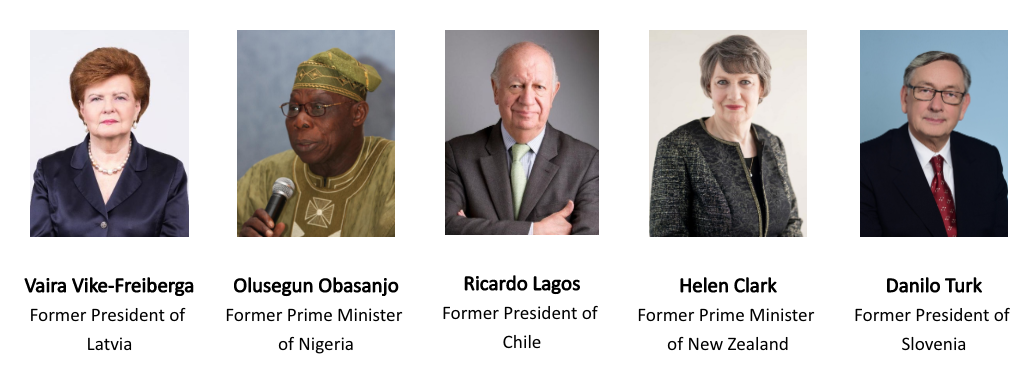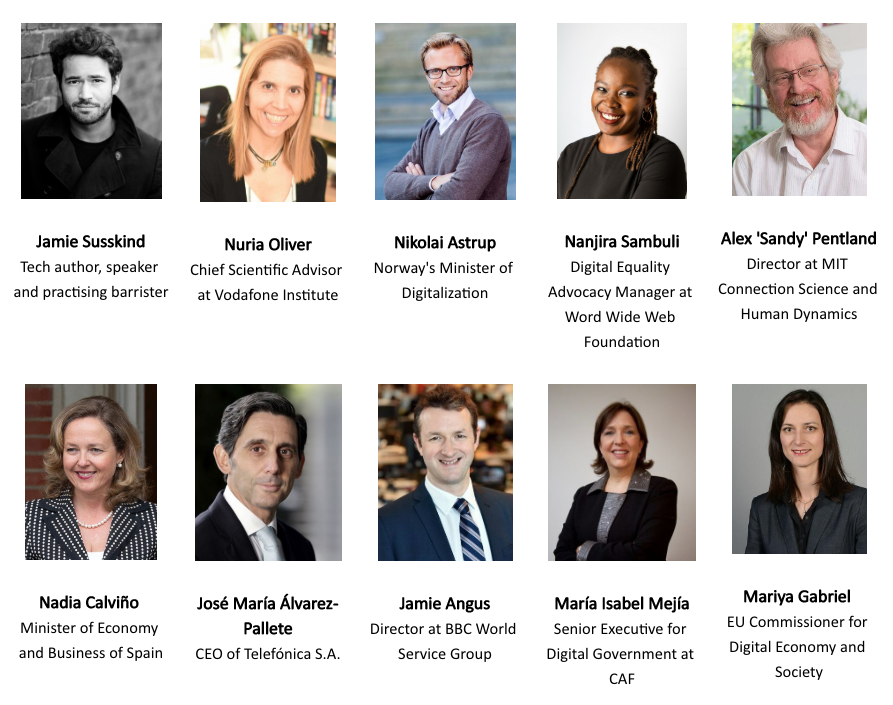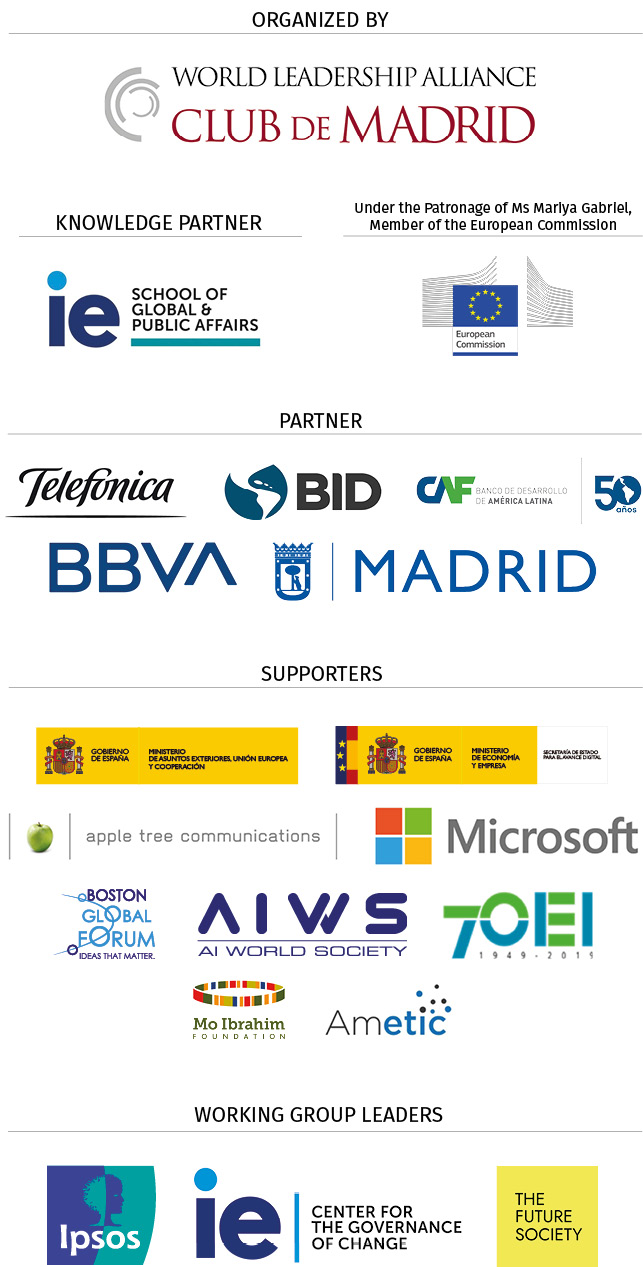Hosted in partnership with the IE School of Global and Public Affairs and under the patronage of Ms Mariya Gabriel, Member of the European Commission, this 2019 edition focused on Digital Transformation and the Future of Democracy.
Digital transformation, particularly the use of artificial intelligence, is posing new risks for democracy around the world. Fundamental rights related to privacy and security, freedom and non-discrimination are challenged by the large-scale collection and use of personal data for advertising, communication and automated decision-making purposes. Rising inequalities and the changing panorama of employment in the data economy are demanding a redefinition of the social contract, while technological giants are gaining leverage as curators of public spaces without democratic accountability. For most citizens, it is also becoming harder to know and trust democratic institutions, as information manipulation, bots and algorithmic filters are increasingly distorting the picture of society that reaches them through digital media.
Yet, digital transformation also provides powerful tools to build better democracy. Guided by adequate values, and goals, new technologies can enable the provision of improved public services, including health care and education, that respond to fundamental rights and increase quality of life. The data economy is facilitating the customization of employment, empowering diversity and enabling mobility. Access to information through digital technologies can also empower citizens and strengthen democratic accountability. But harnessing the potential of digital transformation as a force for the global democratic good requires strategic policy action. It befalls public powers to put in place regulatory frameworks and policy measures that will ensure transparency in the use of digital technologies and accountability for the decisions guided by artificial intelligence systems.
Our Annual Policy Dialogue afforded us an opportunity to gather the thoughts of over 100 renowned experts, policy makers and industry leaders, convened in three Working Groups Working Groups steered by The Future Society, the IE Center for the Governance of Change and Ipsos Global Affairs. Together, we distilled the implications of digital transformation and artificial intelligence for fundamental rights, the future of the social contract in the data economy, and trust and public debate in the face of disinformation.
Emboldened by the scope of the political challenge that is upon us if we are to govern the digital before it governs us, we, WLA-CdM Members, affirm our commitment to promote a democratic approach to digital transformation, in particular artificial intelligence and the problem of control it poses. We will, individually and collectively, enjoin leaders to take proactive action to frame the development of digital technologies in an inclusive, fair and rights-based legal, political and social framework. In this rapidly changing world, reacting to technological development is no longer sufficient; proactive policy has become a necessity.
Over the next months, we will be issuing policy recommendations for political leaders, policymakers, technological entrepreneurs, educators and civil society organizations, calling them to action to help make digital transformation an enabler of democracy. We, WLA-CdM Members, will make this issue a strategic priority for our organization and trust many partners will join us to, together, meet the digital transformation with the political response it requires.
Access Picture Gallery
Club de Madrid’s Policy Dialogue
Thanks to WLA-CdM’s convening power and network, its annual Policy Dialogues provide a unique platform to inspire democratic policy change on a given topic. Former Heads of State and Government bring their individual and collective experience to the dialogue. Given their geographical and ideological diversity, collegially provide an all-encompassing voice enhanced independent experts, leaders from the private sector and representatives from civil society, all of whom actively engage in these Policy Dialogues.
Action Labs
The following sub-themes will guide the three action labs in which concrete policy recommendations will be discussed and agreed upon:
- Fundamental Rights in the Digital Era
- Data Economies and the Future of the Social Contract
- Trust and Public Debate in the Disinformation Age
A glimpse of Speakers at Club de Madrid Policy Dialogue
World Leadership Alliance – Club de Madrid Members
Experts, government representatives and civil society leaders
Policy Dialogue Panel Discussions
Policy Dialogue Video Snippets
This collection of short video interviews were produced in collaboration with the IE School of Global and Public Affairs and Apple Tree Communications, and IPSOS Global Affairs
In collaboration with IE School of Global Affairs
In collaboration with IPSOS Global Affairs
In collaboration with Apple Tree Communications
Partnering Institutions


